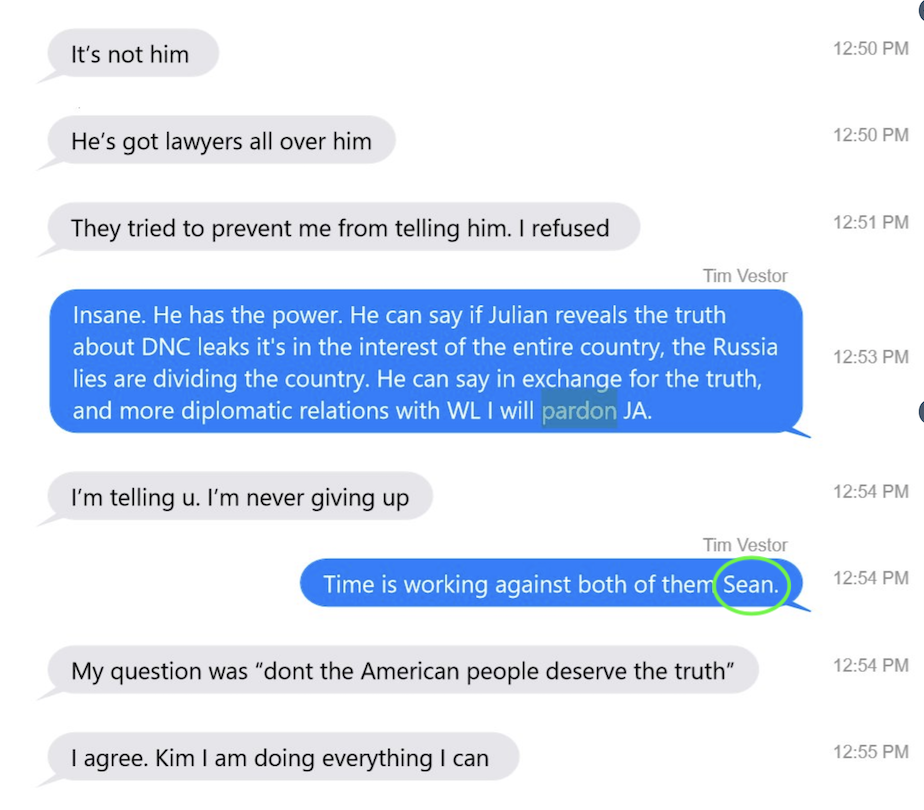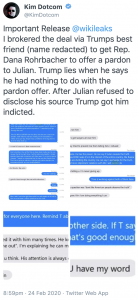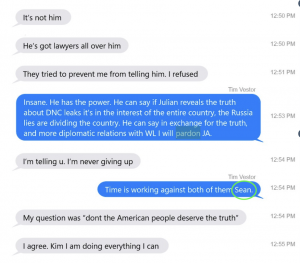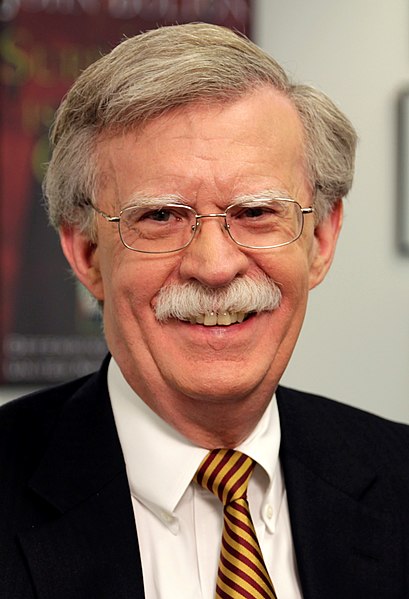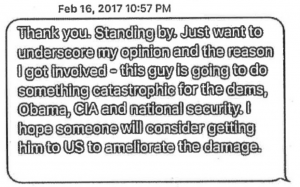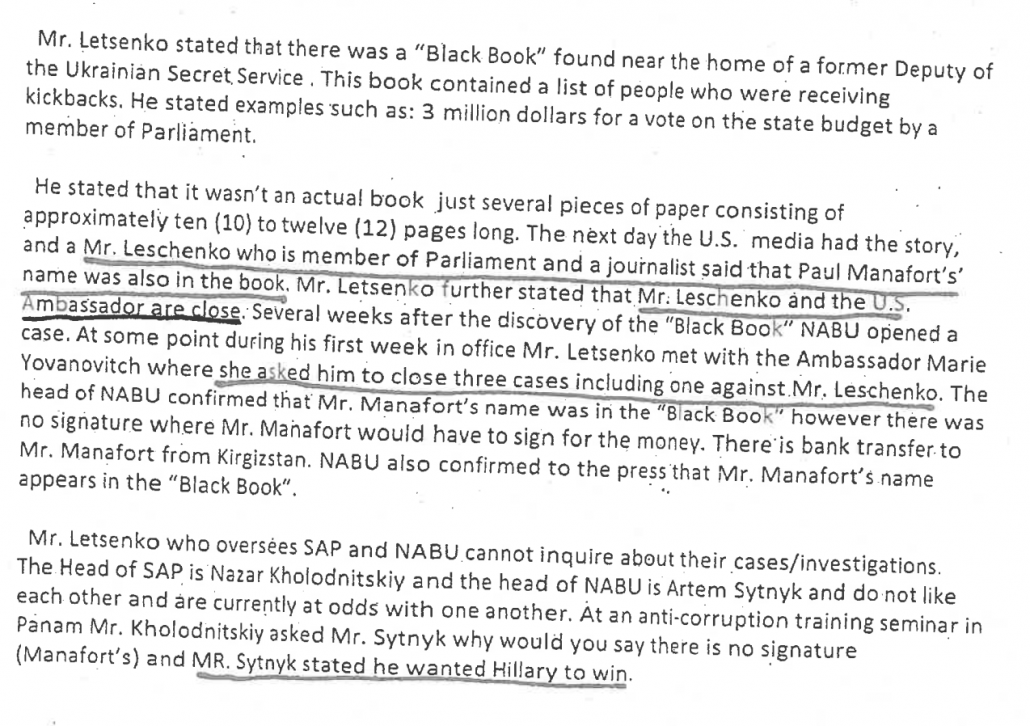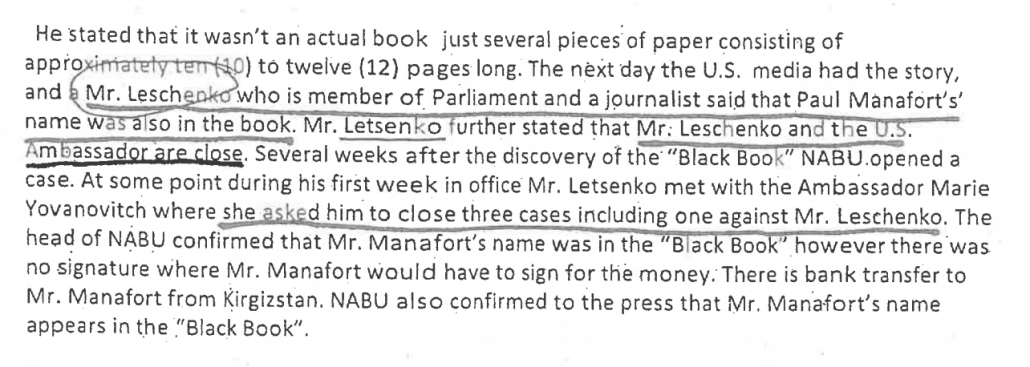Hours before She Attempted to Kill Herself, Prosecutors May Have Told Chelsea Manning that Julian Assange Is a Russian Spy
Back when the government first subpoenaed Chelsea Manning, I laid out why that was likely to be counterproductive.
[U]nless there’s a really good legal reason for the government to pursue its own of evolving theory of WikiLeaks’ activities, it doesn’t make sense to rush where former WikiLeaks supporters are headed on their own. In virtually all venues, activists’ reversed understanding of WikiLeaks is bound to have more credibility (and almost certainly more nuanced understanding) than anything the government can offer. Indeed, that would likely be especially true, internationally, in discussions of Assange’s asylum claim.
A charge against Assange in conjunction with Vault 7 or the 2016 election operation might accelerate that process, without foreclosing the government’s opportunity to present any evolved understanding of WikiLeaks’ role in the future (especially if tied to conspiracy charges including the 2016 and 2017 activities).
But getting into a subpoena fight with Chelsea Manning is likely to have the opposite effect.
That’s true, in part, because post-commutation a lot of people worry about the impact renewed pressure from the government against Manning will have, regardless of the legal soundness of it. The government wanted Aaron Swartz to become an informant when they ratcheted up the pressure on him between 2011 and 2013. They didn’t get that information. And his suicide has become a key symbol of the reasons to distrust law enforcement and its ham-handed legal tactics.
Yesterday, Manning tried to kill herself. While the statement released by her lawyers notes that she has a hearing tomorrow on whether she should be freed because no amount of coercion will make her cooperate with the grand jury, the statement is silent about the fact that she was brought before the grand jury yesterday, hours before the suicide attempt.
I know of no account of what happened in that grand jury appearance. But Jeremy Hammond was also brought before the grand jury in advance of a hearing, also on Friday, in a bid to be freed (in Hammond’s case, he’d be released back into federal prison to serve out his sentence for hacking Stratfor). He gave an account of the appearance in an interview yesterday (the part about the grand jury starts after 41:20). Hammond described how, before entering the grand jury, the prosecutor asked whether there was anything the government could do to get him to change his mind about not testifying.
“What could the United States government do that could get you to change your mind and obey the law here? Cause you know” — he basically says — “I know you think you’re doing the honorable thing here, you’re very smart, but Julian Assange, he’s not worth it for you, he’s not worth your sacrifice, you know he’s a Russian spy, you know.”
The questions he was asked in the grand jury were apparently no surprise: the prosecutor asked whether Assange asked Hammond to hack any websites. Hammond describes the questions as the same as were asked in his last appearance, in September. Because Hammond decided to answer in the same way Bartleby the Scrivener answered questions — by saying he preferred not to answer — the prosecutor afterwards tried to chat up Hammond about world literature. He even reminded that Bartleby died in prison. The prosecutor then repeated that Assange is a Russian spy.
He implied that all options are on the table, they could press for — he didn’t say it directly, but he said they could press for criminal contempt. … Then he implies that you could still look like you disobeyed but we could keep it a secret — “nobody has to know I just want to know about Julian Assange … I don’t know why you’re defending this guy, he’s a Russian spy. He fucking helped Trump win the election.”
Hammond asked why Assange wasn’t charged in the 2016 operation, and the prosecutor appears to have responded that the extradition would take a long time. One of the prosecutors reminded Hammond that one of his Anonymous co-defendants was now a professor in the UK. One asked whether Hammond would discuss Sabu, which surprised him. Hammond said that Sabu was the only one who asked him to hack into any websites. The FBI officer in the room pulled out a notebook and started taking notes.
There’s no indication that prosecutors said the same things to Manning as they did to Hammond, though this is the same grand jury and same prosecutors and both are obviously being asked about Assange.
Which means it is likely that hours before Manning attempted to kill herself, prosecutors tried to get her to answer questions about the man she sent entire databases of secrets to by claiming he is a Russian spy. They may well now have evidence of that — but if they used that tack, they were basically asking Manning to testify that the understanding she has of her own actions are entirely wrong and that the sacrifices she made were for a purpose other than the one she believed in.
Sadly, if Hammond is any indication, Manning is also getting a distorted view of the extradition fight over Assange. As I have noted, WikiLeaks supporters are telling at least three outright lies by:
- Pretending that discussions of a pardon only started in August 2017, in exchange for testimony claiming that Russia didn’t hack the DNC, rather than started well before the FBI investigation into Trump’s campaign was public, as either an implicit or explicit payoff for election assistance
- Claiming that Mike Pompeo’s designation of WikiLeaks as a non-state hostile intelligence agency was part of the larger attack on the press that formally started four months afterwards and presenting his claim that the First Amendment doesn’t protect someone stealing American secrets solely to destroy America out of context
- Distorting the timing of UC Global’s increased surveillance of Assange to hide that it followed the Vault 7 publication
These are cynical, transparent lies being spread by a bunch of people claiming to support journalism. Probably, WikiLeaks supporters are also lying about how Assange repeatedly got tipped off to prosecutorial steps against him, presenting that as proof of Trump’s hostility against Assange.
Earlier in yesterday’s interview, Hammond adopted the distorted claim about Pompeo as “proof” that Assange’s prosecution is political and also that Trump has hostility to the guy who helped him get elected. I doubt whether having an accurate understanding of this would have changed Hammond’s decision not to testify, but he does, apparently, believe the lies.
And I doubt whatever prosecutors told Manning yesterday was the sole cause of yesterday’s attempt. Her attorneys had tried unsuccessfully to prevent yesterday’s testimony, which doesn’t make sense in the context of this week’s hearing unless they believed that even appearing before the grand jury would cause Manning a great deal of stress.
I have no idea what Assange’s relationship with Russia is — that’s presumably the entire point of the grand jury. There’s no doubt there were Russians in chat rooms where the Stratfor hack happened and that Assange was in discussions during the hacks. Obviously, Assange played a key role in the 2016 Russian operation as well as efforts after the fact to invent hoaxes to disclaim Russian involvement. And Joshua Schulte expressed (sometimes contradictory) willingness to seek Russian help after he allegedly sent CIA’s hacking tools to WikiLeaks.
But making such claims amid the stress of a grand jury appearance — if they, in fact, did so — isn’t going to help someone who has a history of self-harm.


